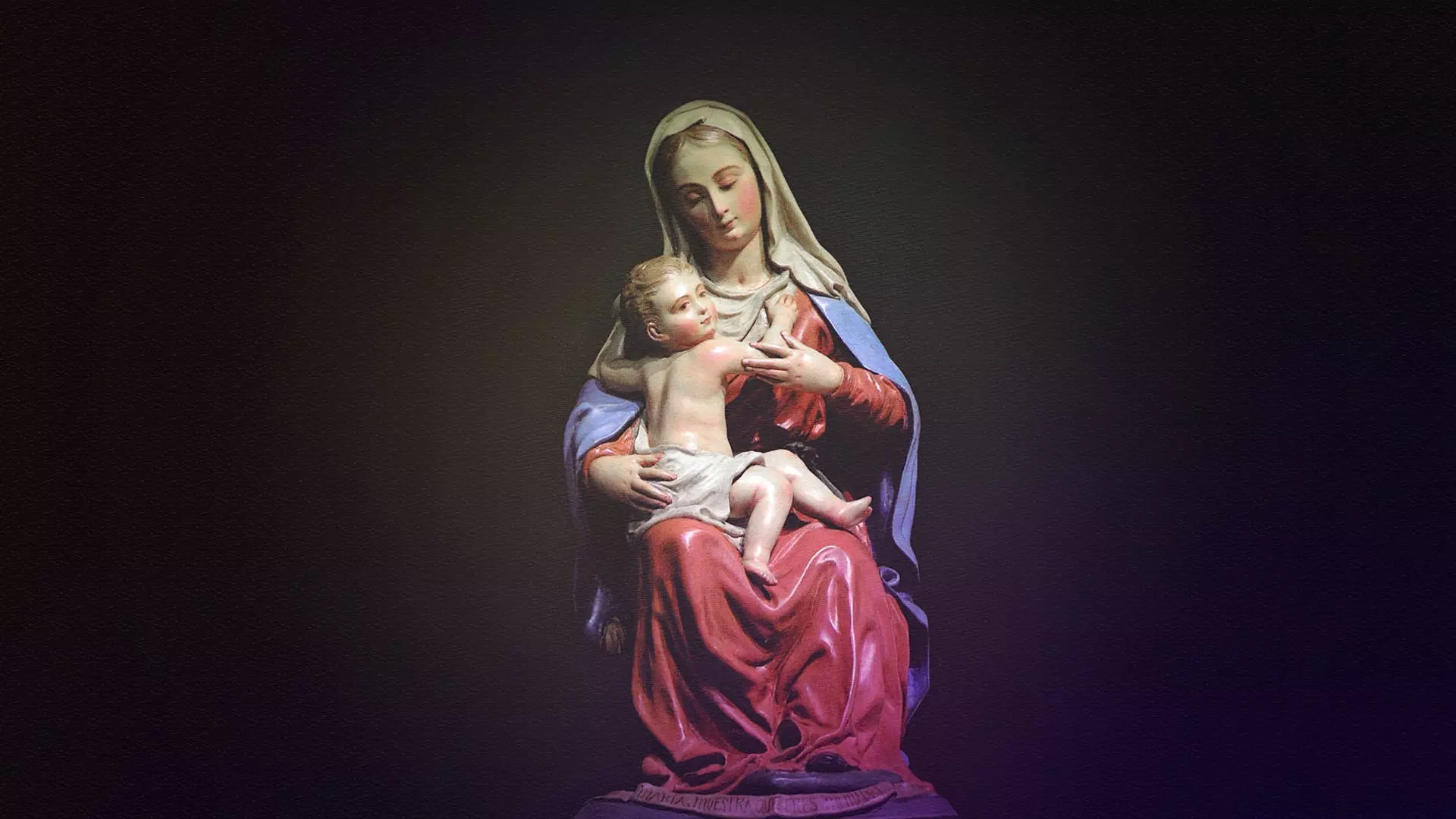During recent summer months, my young granddaughter heard a lovely, old-fashioned song and remarked, “This must be a Christmas song!”
Christmas time certainly features time-honored music we don’t hear the rest of the year.
Handel’s Messiah stands as my all-time classic favorite, but another piece based on Scripture comes to mind.
I can still hear my junior-high Sunday school teacher’s deep alto voice singing,
“My soul doth magnify the Lord, and my spirit doth rejoice in God my Savior…”
Mary’s Magnificat.
A powerful, poetic, profound prophecy echoing the words of Hannah, mother of Samuel, in 1 Samuel 2:1-10, confirming God has been planning something big for a very long time.
Mary’s unpremeditated utterance bursts forth in response to her cousin Elizabeth’s prophecy about Mary’s role as the mother of her Lord.
It is happening. Redemption for humanity. The One inside Mary, conceived by the Holy Spirit, will bring about a great reversal. He will inaugurate an upside-down Kingdom.
“And Mary said: My soul magnifies the Lord, and my spirit rejoices in God my Savior,
because he has looked with favor on the humble condition of his servant.
Surely, from now on all generations will call me blessed, because the Mighty One has done great things for me, and his name is holy.
His mercy is from generation to generation on those who fear him. He has done a mighty deed with his arm; he has scattered the proud because of the thoughts of their hearts; he has toppled the mighty from their thrones and exalted the lowly. He has satisfied the hungry with good things and sent the rich away empty.
He has helped his servant Israel, remembering his mercy to Abraham and his descendants forever, just as he spoke to our ancestors.” –Luke 1:46-55.
Notice how God favors a humble teenage Jewish girl to carry out His plan.
[Click here to subscribe to Pregnancy Help News!]
How the proud are brought down and the lowly are exalted. How those filled to excess leave empty while the hungry are filled.
It’s all quite different from how we view success.
I’m mindful of Jesus’ own words to his disciples when he warned them of the judgment to come. Turns out that feeding the hungry, giving drink to the thirsty, clothing the naked, caring for the sick, and visiting those in prison is a way to minister to Jesus himself—and that not doing such things is a way to neglect Him.
“And the King will answer them, ‘Truly I tell you, whatever you did for one of the least of these brothers and sisters of mine, you did for me…Then he will answer them, ‘Truly I tell you, whatever you did not do for one of the least of these, you did not do for me.’” –Matthew 25:40, 45.
Chilling words for those who don’t care to bother with the vulnerable.
Which brings us to how these thoughts relate to life-affirming ministry.
Certainly, people who lack shelter, food and water, and clothing qualify as vulnerable. So do those who are sick and those who are in prison (which was a horrific place to be in New Testament times).
Women are more vulnerable and likely to be preyed upon than men, and people who live in developing nations have less rights, resources, and opportunities than we do in the U.S.
But where is the most vulnerable population of all located?
Not in a certain nation, nor in prisons, nor on the streets.
Not in a hospital, nor in a soup kitchen.
The most vulnerable population of all is the invisible one hidden inside the wombs of women around the globe who are distressed about their pregnancies.
These endangered children are the most easily disposed of, the most undesirable of the undesirables.
They are the least of these.
Jesus knows all about their vulnerability.
From the very beginning of His earthly life all the way down the path leading to the cross, He chose lowliness.
He didn’t come to earth in a royal family or a grand palace.
He showed up in the womb of a girl who was part of an oppressed group—a girl who could have received a death sentence because of the dubious nature of her baby’s conception.
The Son of God chose a place among the marginalized and the lowly. Even His gestation was lived out among the vulnerable.
From the very beginning of His earthly life, Jesus relates by being one of them.
His mother Mary had no power to resist Rome, nor even the ability to save her own life if charges were pressed against her for an allegedly illegitimate pregnancy.
What a beginning—and what a Savior!
Jesus understands those we serve, He values them and their children. He is the One who can reverse their fortunes and fill them with joy and gladness.
As for us? We have an astonishing privilege in caring for the vulnerable.
I put it this way in Unleashing Your Courageous Compassion:
“The broken ones we reach out to wear the countenance of Christ. When we touch their lives, we minister to Jesus.”
Tweet This: “The broken ones we reach out to wear the countenance of Christ. When we touch their lives, we minister to Jesus.”
One day, we will hear His words of commendation for our labor of love.
What a reward that will be!
The Lord is holy and just. He is merciful to the marginalized.
Like Mary, let us magnify Him as we celebrate His birth.
Let us carry a song of praise in our hearts this season and year-round.






